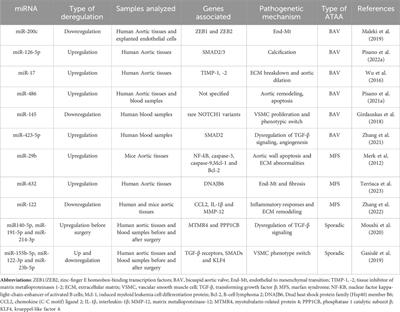REVIEW
Published on 21 Feb 2024
The key role of miRNA in syndromic and sporadic forms of ascending aortic aneurysms as biomarkers and targets of novel therapeutic strategies

doi 10.3389/fgene.2024.1365711
- 1,233 views
423
Total downloads
2,185
Total views and downloads
Select the journal/section where you want your idea to be submitted:

Frontiers in Cell and Developmental Biology